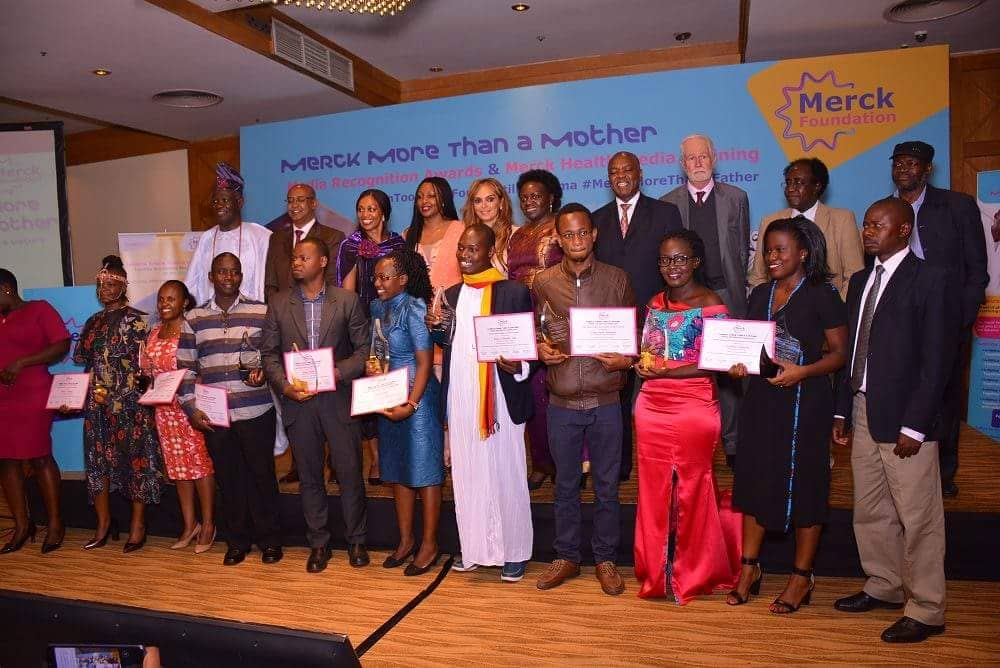
About 200 journalists from 17 African countries attended a training session at Nairobi to acquire knowledge on how to break the stigma associated with infertility and infertile women in Africa through their reportage.
The one day training session organised by Merck Foundation, a philanthropic organisation which seeks to improve the health and wellbeing of people, included bout seven journalist from different media houses in Ghana and journalist from Kenya, Uganda, Tanzania, Rwanda, Gambia, Namibia, Mozambique, Nigeria, South Africa, Ethiopia, Botswana, Liberia, Cameroon, and Sierra Leone.
The training exposed African journalists to the trauma infertile women go through in the societies and the need for the media to educate the African society on infertility and empower women to realise that they are more than mothers.
It focused on the international standards and media ethics for reporting sensitive issues like infertility in Africa and was designed to help journalists understand infertility issues in African communities and to learn the best media practices to cover such issues.
The workshop, the first of its kind organised by Merck Foundation covered topics including, the linkage between infertility and infectious diseases, male infertility, fertility management options in the African community, how the media can empower infertile women, the role of the media in breaking stigma around infertility and ethical medical journalism.
It was also attended by fertility experts, infertile women, and medical professional and health ministers from across the African continent.
The workshop preceded a the Merck ‘More than a Mother’ media awards ceremony which gave recognition of the works of outstanding East African Journalist and University students who have produced good reports to educate and break the stigma associated with infertility in East African communities
Dr Rasha Kelej, Chief Executive Officer (CEO) of Merck Foundation and President of Merck More than a Mother said the training was necessitated by the need to provide an excellent opportunity for the journalists from Africa to network and unit to eradicate infertility stigma.
Merck Foundation, according to her appreciates the outstanding health journalism and seeks the support of health media across Africa to achieve the objective of creating a culture shift and breaking stigma around infertility and infertile women.
She encouraged the media to educate the African communities to understand that infertility affects both men and women, saying; men who have infertile wives must not neglect them but rather support them.
Dr Kelej stated that men too could be the cause of infertility which may be caused by smoking, smoke from a fire, unhealthy balanced diets among others.
She said the foundation will this year expands it awards to all Anglophone and francophone speaking countries in Africa.
Professor Koigi Kamau, Chairman of the Kenya Fertility Society observed that most often, it was women only who show up and seek treatment for infertility.
He stated that men too can be infertile, hence the need for both sexes to seek treatments for infertility together, and stressed the need for a cultural and behavioural change on the perception that woman alone is the cause of infertility.
“We as an African society must understand that a man or women is more than being a father or mother and can contribute a lot to society, their roles are not limited to reproduction only,” he said.
Prof. Kamau, however, noted that physical activities such as the intake of alcoholic beverages, smoking and the inappropriate use of drugs could lead to infertility in men, and advised men to exercise regularly.
According to Dr Pauline Wanjiku, a Kenyan Embryologist, a study published in a fertility article in Kenya indicated that seafood has been proven to decrease fertility in women and their ability to conceive as it contains mercury and lead which affects a woman’s hormone and the fetus which can lead to frequent miscarriages and abnormalities.
She advised the public to reduce their intake of seafood especially fish that stay in the seas for long periods as they may be contaminated and bad for consumptions.
Dr Wanjiru Ndengwa, a Gynecologist and Invitro fertilization (IVF) specialist, Kenya said infertility knowns no gender and addressing infertility required the efforts of both men and women.
‘In African societies, women are the ones who have a larger burden of infertility, it is time for us to appreciate the fact that infertility is a couple thing and not the responsibility of a man or women,” she said.
She stated the infertile couples could consider treatment options such as intrauterine insemination, Intracytoplasmic sperm injection, IVF and assisted reproductive technologies.
The workshop was on the theme; Role of the Media to break the stigma around infertility and infertile women in Africa.
Participants of the workshop were awarded certificates at the end of the training.
Source: Linda Naa Deide Aryeetey, Nairobi

